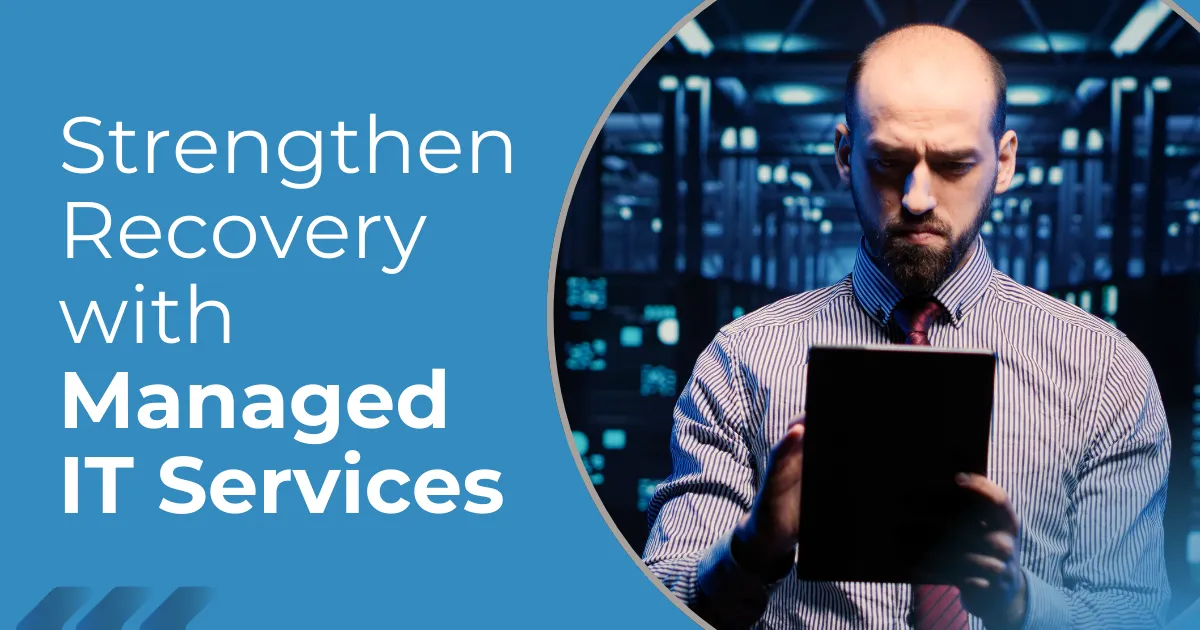"IT Solutions That Power Your Growth — Fast, Secure, and Tailored for Australian Businesses."
"We help SMBs scale with secure, responsive IT services that reduce downtime, simplify compliance, and strengthen cyber resilience."
"IT Solutions That Power Your Growth — Fast, Secure, and Tailored for Australian Businesses."
"We help SMBs scale with secure, responsive IT services that reduce downtime, simplify compliance, and strengthen cyber resilience."
Personalised, Reliable, and Ethical IT Services for Australian Businesses
Our Story:
Meet Hendrik van Zyl — Founder & Principal Consultant
Hendrik van Zyl, Founder — supporting Australian businesses since 1993
Personalised, Reliable, and Ethical IT Services for Australian Businesses
Our Story:
From humble beginnings in a home office over thirty years ago, we've built our company on a foundation of technical excellence and genuine care for Australian businesses.
What started as a passion project has evolved into a trusted technology partner for businesses across Australia, while maintaining the personalized approach only a family-owned operation can deliver.
We see our clients as extensions of our own family. Every solution we provide, every challenge we solve, strengthens relationships that transcend typical business partnerships—creating a community of growth, achievement, and shared success.
Our Services
Comprehensive IT Support
Multi-Channel Support
Dedicated Help Desk
Secure Customer Portal
Education & Training
Infrastructure Design & Build
Strategic Planning
Consulting Services
Change Managment
IT Budget Costing
Business Continuity Planning
Disaster Recovery Solutions
IT Resilience Planning
Data Backup and Protection
Business Impact Analysis
High Speed Internet.
Virtual Private Network (VPN)
Wireless Networks
IP Phone Systems (VoIP)
Identity and Access Management
Compliance and Governance
Network Security
Email Security
Security Awareness Education

Resources

Overcoming Disaster Recovery Challenges with IT Managed Services
Disaster recovery is often an overlooked aspect of business operations—until disaster strikes. When systems fail, data is lost, or operations grind to a halt, the true importance of a well-crafted disaster recovery plan becomes painfully clear.
Many businesses struggle with this critical component, facing challenges that can lead to prolonged downtime, financial loss, and even reputational damage. This is where IT Managed Services Providers (MSPs) come into play.
With their expertise, resources, and proactive strategies, MSPs help businesses overcome disaster recovery challenges, ensuring that when the unexpected happens, recovery is swift and comprehensive. Let's explore how partnering with an MSP can turn potential disaster into a manageable situation, safeguarding your business's continuity.
What are IT Managed Services?
IT Managed Services are like having a dedicated tech team always on standby, ready to handle your business's IT needs without the hassle of managing it all in-house. They take care of everything from maintaining your network to handling security and backups, so you don't have to worry about unexpected tech issues disrupting your operations.
Think of it as having a reliable co-pilot who's always keeping an eye on your systems, making sure everything runs smoothly and stepping in when things go wrong.

Why IT Managed Services are Important
IT Managed Services play a crucial role in helping businesses navigate the ever-evolving landscape of technology. This collaboration goes beyond basic support. They:
Prevent downtime by tackling issues before they escalate
Boost security by applying the latest safeguards
Cut costs by reducing the need for a large internal IT team
Increase efficiency by optimising IT processes and minimising interruptions
And this is just the beginning when it comes to managing your IT. With the right expertise on your side, you'll be free from the worries of backend operations, allowing you to focus more on high-value tasks that drive your business forward.

Common Challenges Businesses Face with Disaster Recovery
Before diving into how IT Managed Services can solve disaster recovery challenges, it's important to recognise the common issues businesses often encounter. These obstacles can significantly hinder recovery efforts, leaving organizations vulnerable during critical moments. Some of the most prevalent challenges include:
1. Lack of Comprehensive Risk Assessment
Many businesses fail to identify all potential risks that could impact their operations. These risks aren't limited to obvious threats like natural disasters—they also include cyberattacks, human error, and even hardware failures or supply chain disruptions.
2. Inadequate Backup Solutions
If backups are not regularly updated or stored in multiple secure locations, there's a risk that critical data won't be restored quickly or completely. This can lead to prolonged downtime, lost revenue, and in some cases, permanent loss of vital information.

3. Insufficient Testing
Unfortunately, many businesses neglect to test their plans regularly, which can lead to a false sense of security. Without consistent testing, issues such as unaddressed vulnerabilities, outdated protocols, or untrained staff can go unnoticed until a real disaster occurs, at which point it's too late to make corrections.
4. Limited Resources
Implementing and maintaining a comprehensive disaster recovery plan requires significant resources, including budget, staff, and technology. Small to medium-sized businesses often struggle to allocate these resources effectively. They may not have the financial means to invest in the necessary infrastructure, or might lack the personnel to manage the disaster recovery process. This limitation can lead to gaps in the plan, making the business more vulnerable when disaster strikes.

5. Complex IT Environments
As businesses grow, their IT environments often become more complex, with a mix of legacy systems, cloud services, and interconnected applications. Managing disaster recovery across such a diverse and intricate environment can be incredibly challenging. Each system may have its own requirements and vulnerabilities, and coordinating a recovery that brings everything back online smoothly requires careful planning and expertise.
6. Poor Communication Plans
Many businesses lack clear protocols for how to disseminate information quickly and accurately during a crisis. Without a well-defined communication plan, confusion can reign, causing delays in response efforts and increasing the likelihood of mistakes. A solid communication plan should outline who needs to be informed, what information they need, and how that information will be communicated.

7. Non-Compliance with Regulations
Your industry might be subject to strict regulations regarding data protection, privacy, and disaster recovery. Failing to align a disaster recovery plan with these regulatory requirements can result in not only greater risk during a disaster but also legal and financial penalties.
8. Dependency on Key Personnel
Disaster recovery plans often rely heavily on the expertise and availability of specific individuals. However, if those key personnel are unavailable during a disaster—whether due to illness, vacation, or even being affected by the disaster themselves—the entire recovery process can be compromised. This over-reliance on a few individuals creates a significant risk, as the plan may not be executable without them.
9. Outdated Documentation
A disaster recovery plan is not a static document—it needs to evolve with the business. However, many companies fail to keep their documentation up-to-date, resulting in plans that no longer reflect current business operations, technologies, or risks. Outdated documentation can lead to confusion during a disaster, as teams may follow outdated protocols that no longer apply.

How Working with an MSP Can Help Your Business
Partnering with an IT Managed Services provider can be a game-changer when it comes to addressing disaster recovery challenges. These experts bring a wealth of knowledge and resources, offering tailored solutions that keep your business resilient in the face of disruptions. Here's how they can help:
Conduct thorough risk assessments to identify and address all potential threats
Implement robust, modern backup solutions that quickly restore critical data

Regularly test and update your disaster recovery plan to ensure readiness
Provide scalable resources to support comprehensive disaster recovery strategies
Simplify recovery across complex IT environments with streamlined processes
Establish clear communication protocols to minimize confusion during a crisis
Align your disaster recovery plan with industry regulations to maintain compliance
Reduce reliance on key personnel by automating and distributing responsibilities
Keep disaster recovery documentation up-to-date and reflective of current operations
Vet and manage third-party vendors to ensure they meet disaster recovery standards
Your Next Steps Toward Business Continuity
Navigating the technical complexities of disaster recovery is no small feat. The challenges are vast and many—from managing diverse IT environments to ensuring compliance and maintaining up-to-date documentation. These hurdles can overwhelm even the most prepared businesses.
That's where IT Managed Services from Interdata Solutions can truly be your saving grace. With our expertise, you can confidently address these challenges, knowing that your disaster recovery plan is in capable hands. At Interdata, we help you create a resilient strategy and continuously monitor, update, and test to keep your business protected against any disruption.
Ready to strengthen your disaster recovery plan? Schedule a complimentary consultation today, and let's secure your business's future.

Our Services
IT Support

Comprehensive IT Support
Proactive Maintenance & Monitoring
Multi-Channel Support
Dedicated Help Desk
Secure Customer Portal
Education & Training
Professional Services

Infrastructure Design & Build
Strategic Planning
Consulting Services
Change Managment
IT Budget Costing
SaaS

Cloud Data Protection - Microsoft 365, Google Workspace, Salesforce, Box, and Dropbox data
Windows, Mac & Linux Backup
Email Security
Anti-Virus & Anti-Malware
Business Continuity

Business Continuity Planning
Backup and Disaster Recovery
Remote Work Solutions
Communications

Email Hosting Services.
Messaging and Collaboration.
High Speed Internet.
Virtual Private Network (VPN)
Mobile Connectivity. Satellite and 5G/4G Services.
Wireless Networks
IP Phone Systems (VoIP)
Cybersecurity

Identity and Access Management
Compliance and Governance
Network Security
Email Security
Security Awareness Education
Continuous Cyber Risk Assessments
Resources
At Interdata Solutions, we understand the importance of staying ahead in today's dynamic business landscape.
That's why we offer valuable insights to our clients, providing them with the latest trends, market analyses, and expert perspectives tailored to the IT sector.

Overcoming Disaster Recovery Challenges with IT Managed Services
Disaster recovery is often an overlooked aspect of business operations—until disaster strikes. When systems fail, data is lost, or operations grind to a halt, the true importance of a well-crafted disaster recovery plan becomes painfully clear.
Many businesses struggle with this critical component, facing challenges that can lead to prolonged downtime, financial loss, and even reputational damage. This is where IT Managed Services Providers (MSPs) come into play.
With their expertise, resources, and proactive strategies, MSPs help businesses overcome disaster recovery challenges, ensuring that when the unexpected happens, recovery is swift and comprehensive. Let's explore how partnering with an MSP can turn potential disaster into a manageable situation, safeguarding your business's continuity.
What are IT Managed Services?
IT Managed Services are like having a dedicated tech team always on standby, ready to handle your business's IT needs without the hassle of managing it all in-house. They take care of everything from maintaining your network to handling security and backups, so you don't have to worry about unexpected tech issues disrupting your operations.
Think of it as having a reliable co-pilot who's always keeping an eye on your systems, making sure everything runs smoothly and stepping in when things go wrong.

Why IT Managed Services are Important
IT Managed Services play a crucial role in helping businesses navigate the ever-evolving landscape of technology. This collaboration goes beyond basic support. They:
Prevent downtime by tackling issues before they escalate
Boost security by applying the latest safeguards
Cut costs by reducing the need for a large internal IT team
Increase efficiency by optimising IT processes and minimising interruptions
And this is just the beginning when it comes to managing your IT. With the right expertise on your side, you'll be free from the worries of backend operations, allowing you to focus more on high-value tasks that drive your business forward.

Common Challenges Businesses Face with Disaster Recovery
Before diving into how IT Managed Services can solve disaster recovery challenges, it's important to recognise the common issues businesses often encounter. These obstacles can significantly hinder recovery efforts, leaving organizations vulnerable during critical moments. Some of the most prevalent challenges include:
1. Lack of Comprehensive Risk Assessment
Many businesses fail to identify all potential risks that could impact their operations. These risks aren't limited to obvious threats like natural disasters—they also include cyberattacks, human error, and even hardware failures or supply chain disruptions.
2. Inadequate Backup Solutions
If backups are not regularly updated or stored in multiple secure locations, there's a risk that critical data won't be restored quickly or completely. This can lead to prolonged downtime, lost revenue, and in some cases, permanent loss of vital information.

3. Insufficient Testing
Unfortunately, many businesses neglect to test their plans regularly, which can lead to a false sense of security. Without consistent testing, issues such as unaddressed vulnerabilities, outdated protocols, or untrained staff can go unnoticed until a real disaster occurs, at which point it's too late to make corrections.
4. Limited Resources
Implementing and maintaining a comprehensive disaster recovery plan requires significant resources, including budget, staff, and technology. Small to medium-sized businesses often struggle to allocate these resources effectively. They may not have the financial means to invest in the necessary infrastructure, or might lack the personnel to manage the disaster recovery process. This limitation can lead to gaps in the plan, making the business more vulnerable when disaster strikes.

5. Complex IT Environments
As businesses grow, their IT environments often become more complex, with a mix of legacy systems, cloud services, and interconnected applications. Managing disaster recovery across such a diverse and intricate environment can be incredibly challenging. Each system may have its own requirements and vulnerabilities, and coordinating a recovery that brings everything back online smoothly requires careful planning and expertise.
6. Poor Communication Plans
Many businesses lack clear protocols for how to disseminate information quickly and accurately during a crisis. Without a well-defined communication plan, confusion can reign, causing delays in response efforts and increasing the likelihood of mistakes. A solid communication plan should outline who needs to be informed, what information they need, and how that information will be communicated.

7. Non-Compliance with Regulations
Your industry might be subject to strict regulations regarding data protection, privacy, and disaster recovery. Failing to align a disaster recovery plan with these regulatory requirements can result in not only greater risk during a disaster but also legal and financial penalties.
8. Dependency on Key Personnel
Disaster recovery plans often rely heavily on the expertise and availability of specific individuals. However, if those key personnel are unavailable during a disaster—whether due to illness, vacation, or even being affected by the disaster themselves—the entire recovery process can be compromised. This over-reliance on a few individuals creates a significant risk, as the plan may not be executable without them.
9. Outdated Documentation
A disaster recovery plan is not a static document—it needs to evolve with the business. However, many companies fail to keep their documentation up-to-date, resulting in plans that no longer reflect current business operations, technologies, or risks. Outdated documentation can lead to confusion during a disaster, as teams may follow outdated protocols that no longer apply.

How Working with an MSP Can Help Your Business
Partnering with an IT Managed Services provider can be a game-changer when it comes to addressing disaster recovery challenges. These experts bring a wealth of knowledge and resources, offering tailored solutions that keep your business resilient in the face of disruptions. Here's how they can help:
Conduct thorough risk assessments to identify and address all potential threats
Implement robust, modern backup solutions that quickly restore critical data

Regularly test and update your disaster recovery plan to ensure readiness
Provide scalable resources to support comprehensive disaster recovery strategies
Simplify recovery across complex IT environments with streamlined processes
Establish clear communication protocols to minimize confusion during a crisis
Align your disaster recovery plan with industry regulations to maintain compliance
Reduce reliance on key personnel by automating and distributing responsibilities
Keep disaster recovery documentation up-to-date and reflective of current operations
Vet and manage third-party vendors to ensure they meet disaster recovery standards
Your Next Steps Toward Business Continuity
Navigating the technical complexities of disaster recovery is no small feat. The challenges are vast and many—from managing diverse IT environments to ensuring compliance and maintaining up-to-date documentation. These hurdles can overwhelm even the most prepared businesses.
That's where IT Managed Services from Interdata Solutions can truly be your saving grace. With our expertise, you can confidently address these challenges, knowing that your disaster recovery plan is in capable hands. At Interdata, we help you create a resilient strategy and continuously monitor, update, and test to keep your business protected against any disruption.
Ready to strengthen your disaster recovery plan? Schedule a complimentary consultation today, and let's secure your business's future.


1300 130 931
Level 57, 19-29 Martin Place, Sydney NSW 2000
Monday - Friday, 9:00 am - 5:00 pm
© Copyright 2026. Interdata Solutions Pty Limited. All rights reserved.













